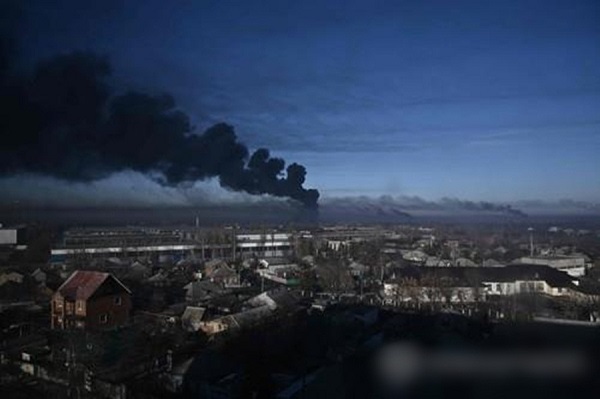Kiev, (Asian independent) From September 7-11, Russian President Vladimir Putin’s military forces saw at least 338 pieces of important military hardware, from fighter jets to tanks to trucks, destroyed, damaged or captured, according to numbers from the open source intelligence website Oryx.
The developments come as Ukraines forces have bolted through Moscow-held territory in an offensive that has stunned the Russians in its speed and breadth.
Ukrainian reports say Putin’s troops are fleeing east to the Russian border in whatever transport they can find, even taking cars from the civilian population in the areas they had captured since the start of the war in February, reports CNN.
In their wake, they leave hundreds of pieces of the Russian war machine, which since Putin’s so-called “special military operation” commenced, has not come close to living up to its pre-war billing as one of the world’s great powers, CNN reported.
These Russian losses are the accumulation of a multitude of existing problems that are now colliding head-on with a Ukrainian military that has been patient, methodical and infused with billions of dollars of the Western military equipment that Russia cannot match.
And without a drastic, and potentially unconventional intervention from Putin, the Ukrainian victories are likely to accelerate, analysts say.
Many of Russia’s problems, poor and inflexible leadership, sour troop morale, inadequate logistics and hardware beset by maintenance issues, have been evident since the beginning stages of the war more than seven months ago.
The Russian military’s hollow core, including tanks that were easy prey for Ukrainian ground troops and trucks that did not have the right tyres to traverse Ukraine’s landscape, was quickly exposed by tactics ill-suited to the blitzkrieg Putin had planned, CNN reported.
As the fighting intensified, Ukrainian forces targeted Russian leadership, killing generals and colonels who would have been expected to rally the Russian forces.
Pavel Filatyev, a Russian paratrooper who fought his army’s capture of the Ukrainian city of Kherson earlier in the war, told CNN last month that his unit lacked even the basics during that operation.
“Several days after we encircled Kherson many of us did not have any food, water or sleeping sacks,” he said.
“Because it was very cold at night, we couldn’t even sleep. We would find some rubbish, some rags, just to wrap ourselves to keep warm.”
And their armaments were substandard, he said, adding that “all of our weapons are from the times of Afghanistan”, where Russian forces fought from 1979 to 1989.








